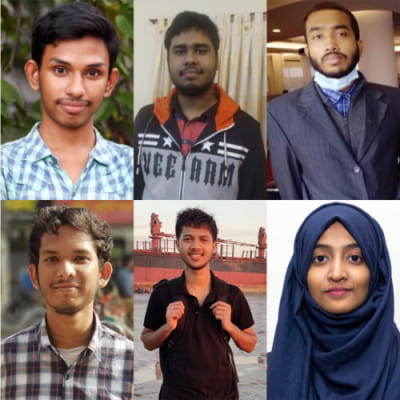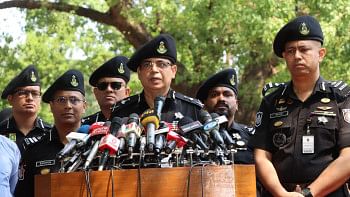BUET team becomes category champion in NASA apps contest

Since the inception of NASA's International Space Apps Challenge, a global hackathon, they have actively engaged people across the globe to use NASA's open data to create innovative solutions to challenges we face on Earth and space. The idea of Space Apps is to inspire local communities to come together and create solutions to important problems in a 48-hour sprint. During this hackathon, their participants hack solutions to challenges that NASA proposes, creating games, smartphone and computer apps, videos, teaching tools, and much more.
The challenges change each year within the theme of Earth and space. Some of the most popular challenges in 2019 included subjects ranging from the Earth's sea level rise, to designing sustainable missions to Venus and Mars.
This year, Space Apps declared challenges in 7 different categories: observe, inform, sustain, create, confront, connect and invent your own challenge.
Under the category "Connect", one of the sub-categories was "Orbital Sky", where the winner was team BUET Zenith from Bangladesh.
The 6 team members areMd Mehrab Haque, Rabib Jahin, Md Tamimul Ehsan, Hasan Masum, Md Jehadul Karim Sabit, and Fabiha Tasneem, who got in touch with each other through other projects before the NASA space app challenge.
In "Orbital Sky", NASA challenged the participants to develop a method to improve public knowledge of satellites, with an eye towards driving user engagement, enthusiasm, and exploration, to connect people with satellites in a socially, technically and visually engaging way. Satellites have been upgrading our lives in many ways, but the mass people are not organically connected to it. NASA challenged to develop such a platform that may solve this exact issue.
"Our project, Satellight, aims at connecting people with satellites in a socially engaging way by representing satellites in a very visual, social and organic way. It comprises of Web and Android apps and Arduino module," says Mehrab. "Using our apps, users can observe satellites in Map View, Night Sky View, 3D Model View, VR and First-Person View live in real-time or at any time in past or future. Not only that, they can comment on their favorite satellites and see others' comments and number of views for a particular satellite too. Our Arduino module is a physical 3D pointing device that upon selection of a satellite, will physically point to the sky, where the satellite is currently at."
He further adds, "Although I think that the participation and intellectual ecosystem was the greatest achievement from this project, we have a progressive motivation towards applying what we know in real-world scenarios, which is the core philosophy of our collaboration."
Rabib said that the team aims to participate in different hackathons at home and abroad in the future and come out as champions.
"Winning something is definitely a matter of great pride, and even more when it is your first international contest. But the joy exceeds everything when one gets to represent their country on a global platform," says Md Tamimul. "NASA Space Apps Challenge gave me the perfect floor for that feat. It was an amazing learning opportunity for me as a science enthusiast. Getting in touch with people from home and abroad in this field broadened my comprehension. Initiatives taken from the root level often die young. I hope those will get the due recognition and support so that dreamers are motivated to continue dreaming."
Space Apps 2020, held from October 2 to 4, was hosted by NASA, CSA, CNES, JAXA, and ESA, with over 26,000 registered participants from 251 local events and the 'Universal Event' from 150 countries. The contest had over 3,800 teams, 2,300 project submissions, 440 volunteers (local leads, subject-matter experts, ambassadors) in 23 challenges and over 29,000 virtual boot camp views.

 For all latest news, follow The Daily Star's Google News channel.
For all latest news, follow The Daily Star's Google News channel. 



Comments